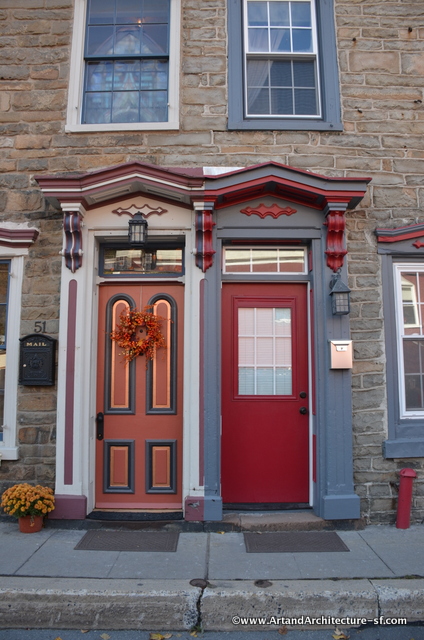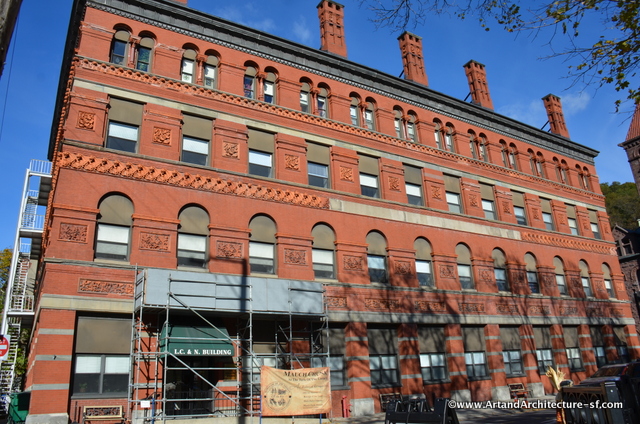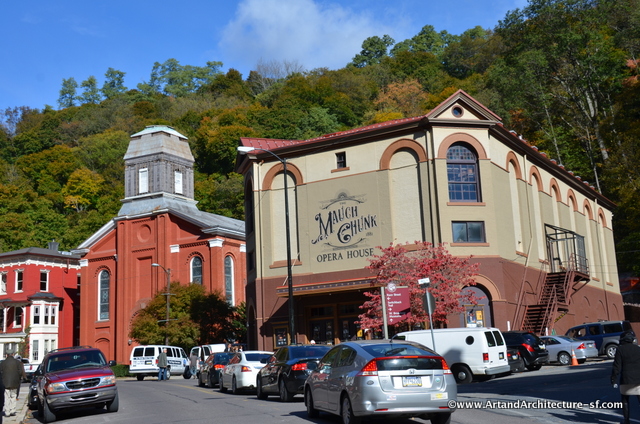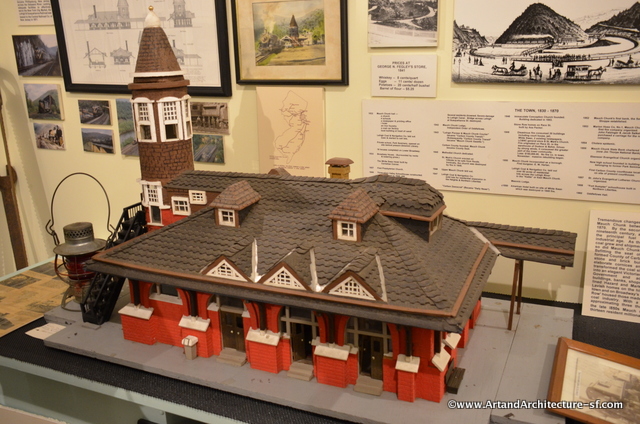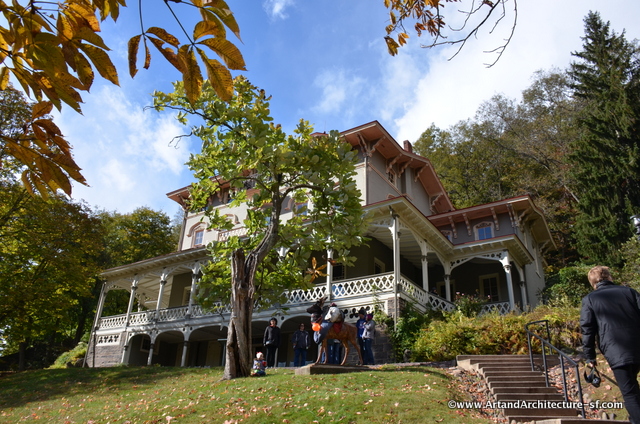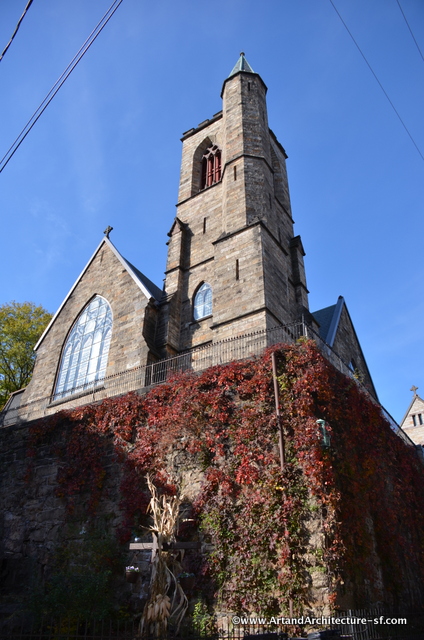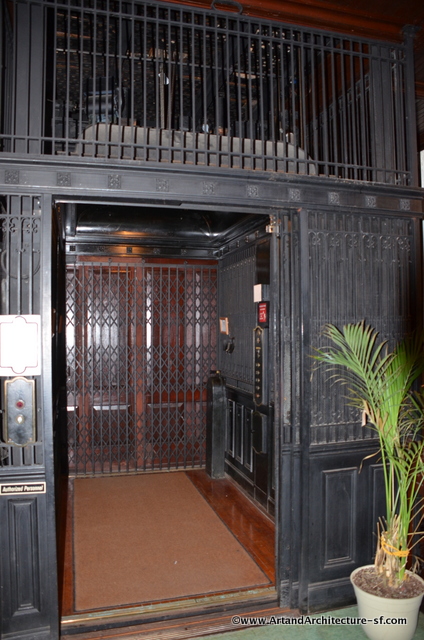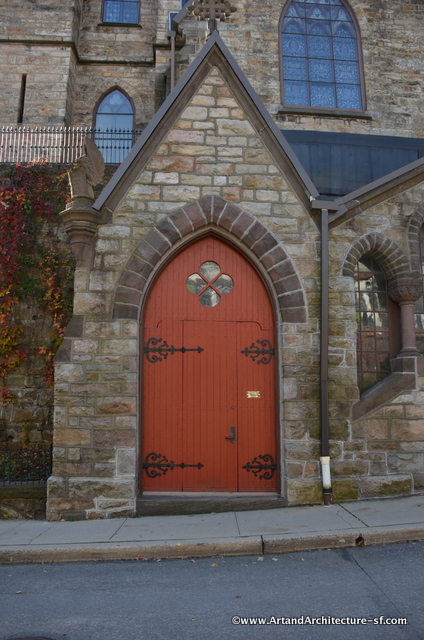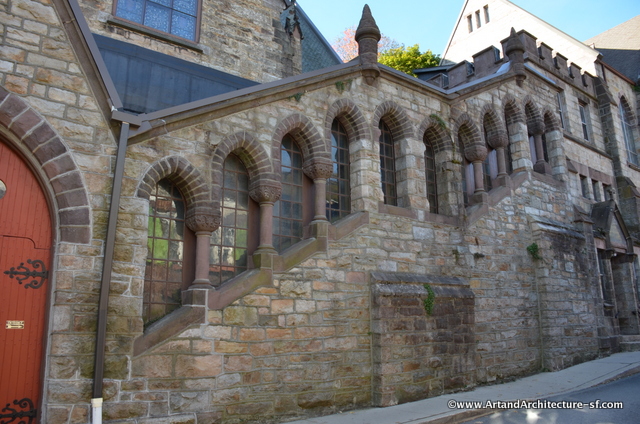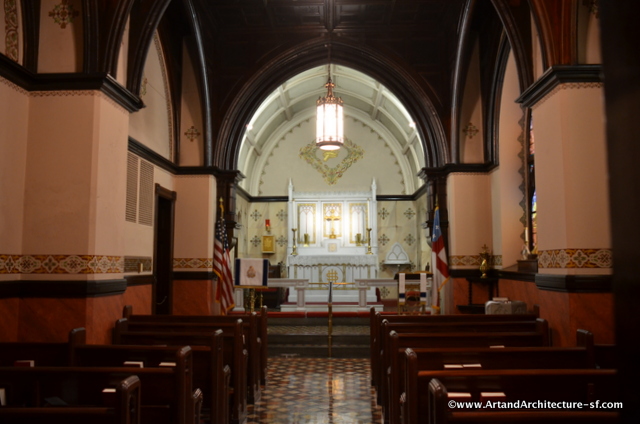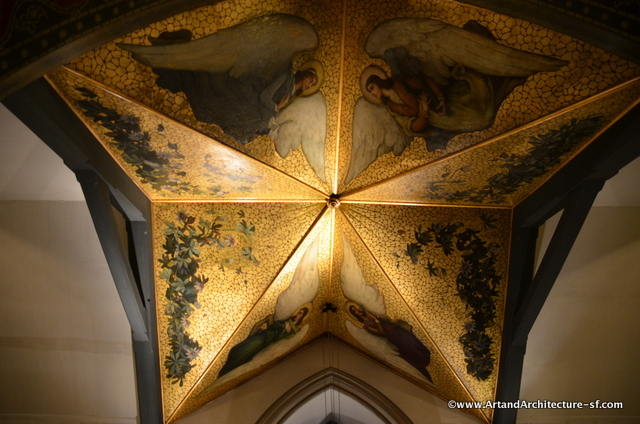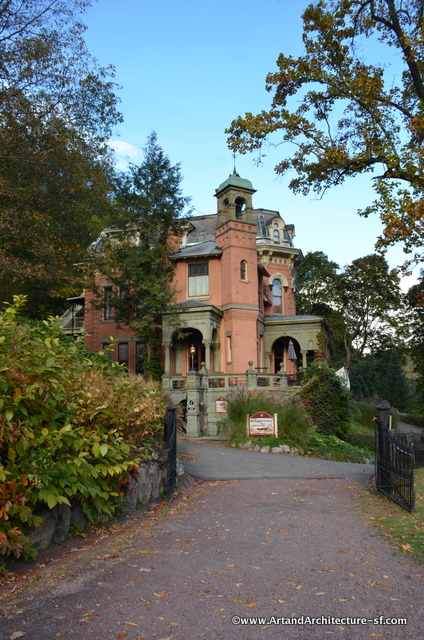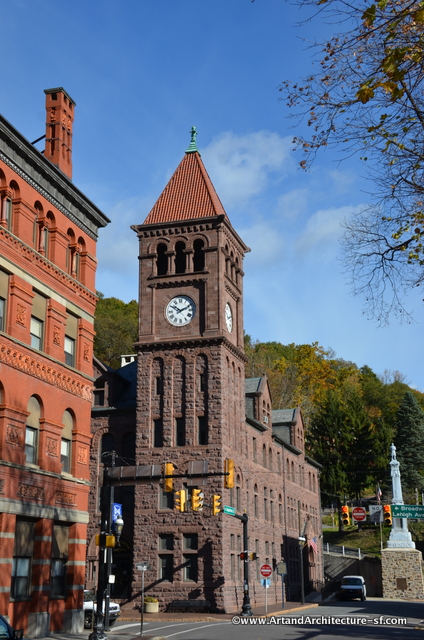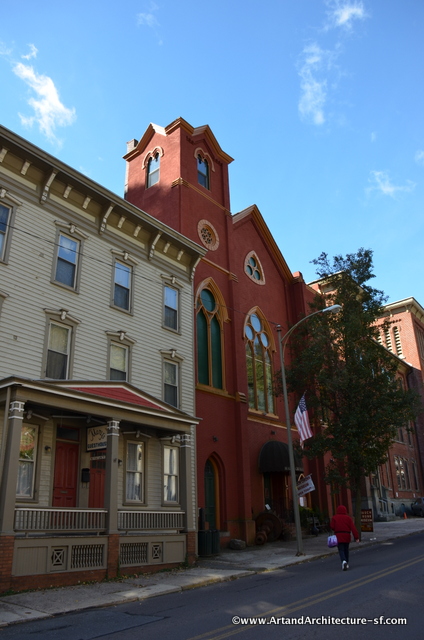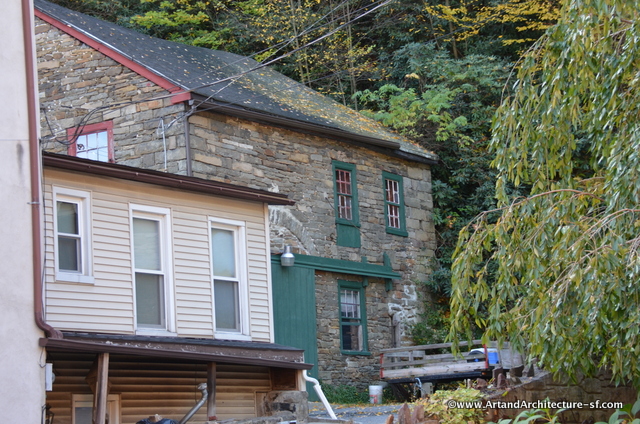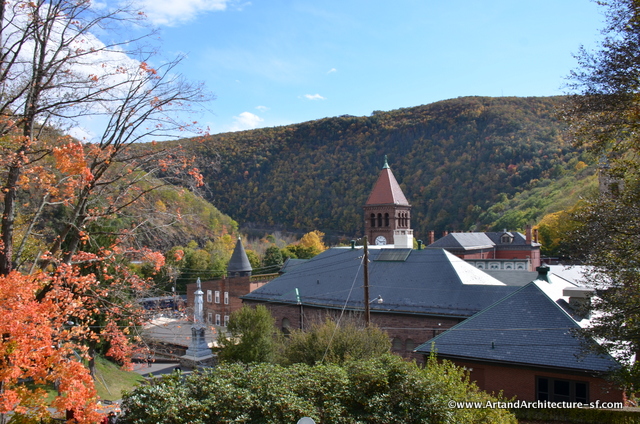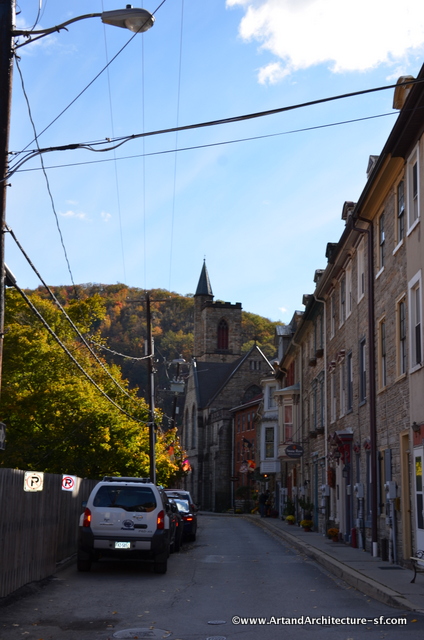October 2015
Jim Thorpe was originally called Mauch Chunk (Bear Place in the Lenape Indian Language). It is the seat of Pennsylvania’s, Carbon County, and is called both “Switzerland of America” and “Gateway to the Poconos”.
This was the company town of the Lehigh Coal & Navigation Company. The company developed a gravity-fed rail system to feed the anthracite taken from the hills, to barges on the Lehigh Canal.
The rail system consisted of 8.7-miles of downhill track, (this type of track was called a gravity railroad), with the sole purpose of delivering coal, one driver to operate the brakes, and mules to haul the cars back up the hill, down to the Lehigh Canal.
The need for Anthracite Coal began to wane by the 1850s, and the “Gravity Road” (as it became known) began providing rides to thrill seekers (it got up to 50 mph) for 50 cents a ride. It is often cited as the first roller coaster in the United States.
How the town became Jim Thorpe is rather complicated, and is still steeped in controversy.
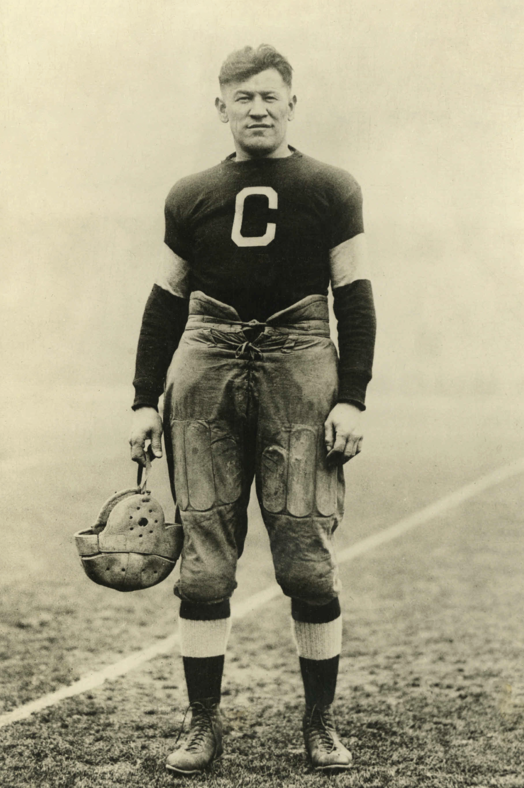 Jim Thorpe was a Native American from Oklahoma and considered one of the greatest athletes ever. He won Olympic gold medals for the 1912 pentathlon and decathlon. He also played college and professional baseball, basketball and football.
Jim Thorpe was a Native American from Oklahoma and considered one of the greatest athletes ever. He won Olympic gold medals for the 1912 pentathlon and decathlon. He also played college and professional baseball, basketball and football.
It was found he was paid to play two seasons of semiprofessional baseball and was stripped of his gold medals. Married three times, he died a pauper.
After his death in 1953 his widow was angry that the state of Oklahoma would not erect a monument in his honor. At the same time the Mauch Chunk area was desperate to attract business to the dying communities. Thorpe’s widow promised many things that never came to fruition in exchange for renaming the town. One mile out of town, a large tomb with Thorpe’s body sits on mounds of soil from Thorpe’s native Oklahoma and from the Stockholm Olympic Stadium in which he won his Olympic medals. There is also a statue of Thorpe in an athletic stance that was funded by the local school children.
In 2010 Thorpe’s son Jack sued to have his fathers remains, his tomb and his statue, taken back to Oklahoma, the City of Jim Thorpe fought, saying that the city had invested considerably in the tomb, and the statue and while they could have the bones, they could not have the memorial. The fight went on for years, and on October 5, 2015, the United States Supreme Court refused to hear the matter, bringing the process to an end.
An odd piece of this are his medals, while many of Thorpe’s teammates fought for years to have his medals’ restored it took until 1983 when commemorative medals were awarded to two of Thorpe’s children. Thorpe’s original medals had been held in museums, but were stolen, and never recovered.
The town is very proud of Jim Thorpe, but many feel it is time to go back to the original name of Mauch Chunk, apparently the cost would be prohibitive.
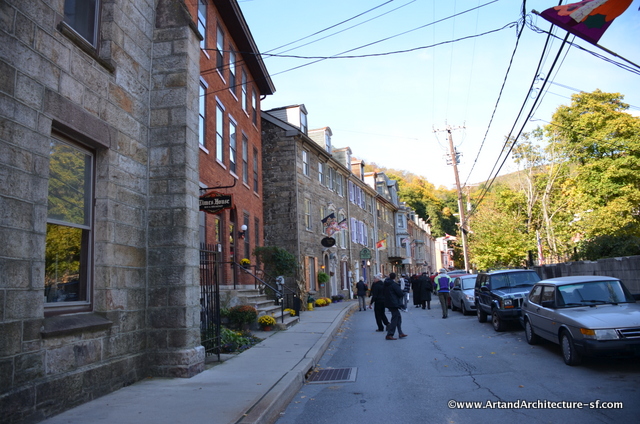
The narrow streets and old stone buildings help to give Jim Thorpe the nickname “Switzerland of America”
The second most famous person in the town of Jim Thorpe/ Mauch Chunk is Asa Packer (1805 – 1879). Packer was a railroad baron and said to be one of the richest men in the world during his lifetime.
His legacy includes Lehigh University in Bethlehem, PA as well as his home (open for tours) and the St. Marks Church in Jim Thorpe.
This Gothic Revival style church was designed by Richard Upjohn between 1867 and 1869. The regularly coursed dressed stone jutting from the hill along with the crenelated bell tower and octagonal turret make for a commanding statement in the town. Below the main church the Mary Packer-Cummings Memorial Building, designed by Addison Hutton, was added in 1912.
The church was added to the National Register of Historic Places in 1977, and declared a National Historic Landmark in 1987.
